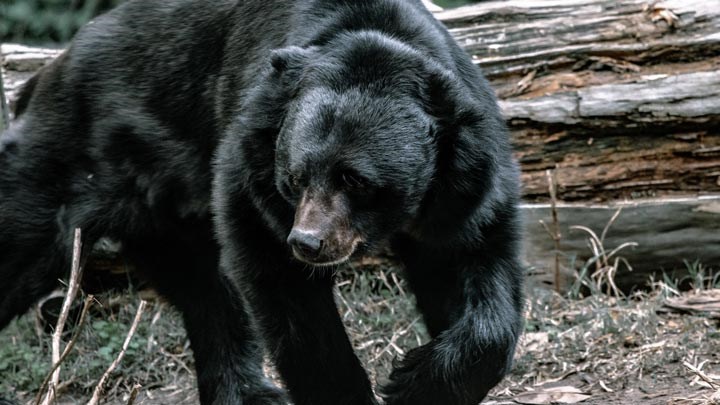
by Cody McLaughlin - Friday, May 20, 2022

When it comes to the need to manage prey and predator populations alike, those battling to secure decisions based on wildlife science chalked up another victory for hunters nationwide against those seeking to end California’s black bear hunt. Backed by extremist groups including the Humane Society of the United States (HSUS), California Petition 2021-027 was defeated when the California Game Commission unanimously voted 4-0 to reject the ban in favor of supporting the truth about hunting, which is that it is indeed a valuable wildlife management tool.
The NRA’s Hunters’ Leadership Forum (HLF) has been tracking this issue for readers for months. Twenty-five hunter-backed groups, including the NRA, led the way with a coalition to fight the petition.
In February, the coalition penned a nine-page letter signed by the group’s signatories to Peter S. Silva, president of the California Fish and Game Commission (CFGC). In the letter, the groups strongly opposed the ban, citing “the best available science clearly validates that our black bear populations are currently in excellent condition.” In pushing back against the petition sponsors’ most egregious claims—among them being the petitioners’ “attempt to discredit the methods the CDFW [California Department of Fish and Wildlife] uses to derive black bear population estimates. They then contradict themselves by using the same data to claim bear populations in California have decreased by 67 percent.”
Arguing that the largely settled decades of research into bear populations in the Golden State wasn’t enough, the HSUS sponsored the controversial petition on the grounds of a baseless claim that bear populations were declining.
According to the Western Bear Foundation, people were waiting as long as eight hours and drove four or more hours to speak for a minute on this contentious issue. Hunters statewide and beyond testified to the harvesting of the meat and to the illegality of wanton waste of meat, thereby effectively eviscerating a huge part of HSUS’ argument.
The CFGC summed up the decision by noting, “Our best available science, from multiple lines of evidence, points to an abundant and stable black bear population. Hunting affects only a small fraction of that population and serves as a management tool to provide key population monitoring data that cannot be easily obtained otherwise.”
As readers of this HLF site are aware, bear attacks against humans are on the rise and continue to make the news, which is what one can expect in areas where wildlife is not properly managed. In Florida, just a couple weeks ago an Apopka couple described being charged by a black bear as a “horrifying” experience and shared a viral video highlighting the encounter. On the other side of the country—the day the California decision was handed down—a Canadian man fought off a black bear with a knife just outside his home in New Brunswick, Canada. In New Jersey, a state that this website reports on repeatedly due to its escalating bear attacks, a black bear killed a person’s dog and bit the owner when she tried to rescue it. Another dog also was recently killed in the Garden State, and readers will likely remember hearing about a 2020 high profile mauling of a New Jersey resident in his own garage. Yet N.J. Gov. Phil Murphy, backed by animal rights extremists, got bear hunting banned despite numerous evidence of skyrocketing encounters and complaints. While the recent win in California is something to celebrate, hunters must remain vigilant and ready to fight for sound science and wildlife management. As anyone paying attention can see, these incidents will only continue to spiral out of control the more anti-hunting extremists meddle in scientific management of wildlife species.
About the Author
Cody McLaughlin is a noted conservationist and conservative thought leader on public policy issues including hunting, fishing, gun rights, free-market tax and wage policy and the environment. He works as a GOP consultant for conservative political causes, managing clients’ digital communications and online presence and as a trustee of the New Jersey Outdoor Alliance, helping to represent the state’s 1.2 million sportsmen in the political arena.
E-mail your comments/questions about this site to:
[email protected]
Proudly supported by The NRA Foundation and Friends of NRA fundraising.
